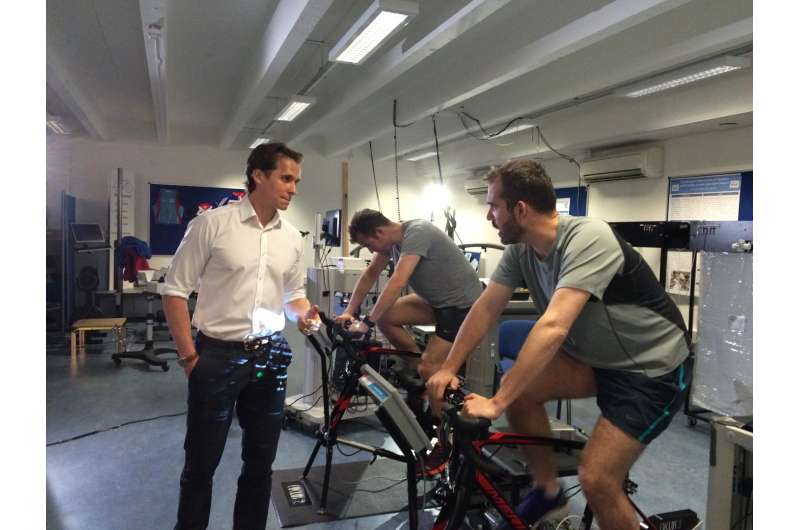Stimulating the brain makes exercising the legs feel easier

Research led by the University of Kent shows stimulation of the brain impacts on endurance exercise performance by decreasing perception of effort.
The study examined the effect of a technique called transcranial direct-current stimulation (tDCS), a form of non-invasive brain stimulation, on the neuromuscular, physiological and perceptual responses to exhaustive leg exercise.
Researchers led by Dr Lex Mauger from Kent's School of Sport and Exercise Sciences found that tDCS delayed exhaustion of the leg muscles by an average of 15% during an exercise task, and that this was likely caused by the participants feeling less effort during the exercise. However, tDCS elicited no significant effect on the neuromuscular response to exercise.
The performance effects of tDCS only occurred when the tDCS electrodes used to deliver the electrical current were positioned in a particular way. This study therefore provides important methodological guidance for the application of tDCS and provides further evidence that brain stimulation can improve endurance exercise performance, although the authors warn against the uncontrolled use of tDCS.
'Transcranial direct current stimulation improves isometric time to exhaustion of the knee extensors' (A. R. Mauger, L. Agnius, J. Hopker, S. M.Marcora, all University of Kent and B.Pageaux, Universite de Bourgogne) is published in the journal Neuroscience.
More information: L. Angius et al, Transcranial direct current stimulation improves isometric time to exhaustion of the knee extensors, Neuroscience (2016). DOI: 10.1016/j.neuroscience.2016.10.028

















